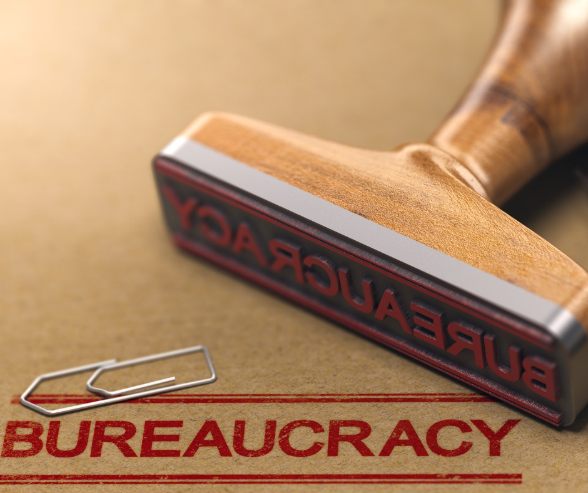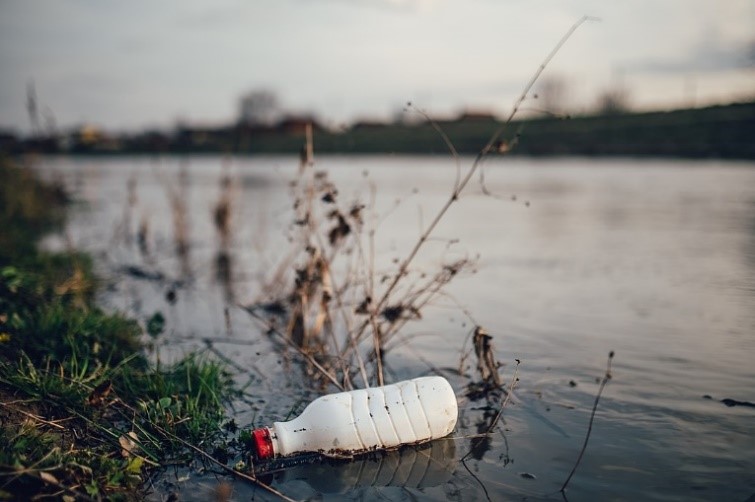Exploring the Pros and Cons of Extended Producer Responsibility (EPR) Laws
By Monica I. Johnson
For decades, China bought trash from the U.S. and many other countries around the world. In fact, 70 percent of the world's recycling material landed at Chinese ports. However, in 2018 China enacted a policy that sent shockwaves around the world. They passed the National Sword Policy—a ban on importing low-grade plastics to China, and with this ban, the U.S. and other countries would have to learn how to deal with their own trash.

Decades of depending on China, left the U.S. with no solid contingency plan. Now plastic recycling is the uninvited guest at the front door of states and municipalities. Unfortunately, the issue has been met with the chaos of conflicting consumer rules and a lack of standardization.
Sure, consumers should recycle, and local governments should provide a reasonable means of waste management; it is good stewardship. However, the buck should not stop there. Shouldn’t suppliers be good stewards too?
.jpg?width=700&height=587&name=suppliers--2-%20(1).jpg)
The U.S. has approximately 2,000 landfills, and the decreasing space to house trash is becoming critical for some municipalities. According to International Union for Conservation of Nature (IUCN), 300 million tons of plastic is produced every year for various applications. At least 14 million tons end up in the ocean.
IUCN also reports that plastic makes up 80% of all marine debris found from surface waters to deep-sea sediments. Just imagine the effects on marine life and ecosystems depending on the ocean.

Some states are taking matters into their own hands by imposing extended producer responsibility laws. An article from Brown Political Review says the legislation “...shifts the responsibility for recycling and sustainability from consumers to producers.”
“How?" you may ask. Regulations.
The idea is for producers to make environmental considerations when designing their products and throughout its lifecycle.
France has had an EPR law since 1975. The original law states: “Producers, importers and distributors of these products or the elements and materials used for their manufacture may be obliged to pay for or contribute to the disposal of the waste generated by them."
Organisation for Economic Co-operation and Development's 2016 Extended Producer Responsibility: Guidance for Efficient Waste Management asserts EPRs helped France decrease the burden on municipalities and taxpayers who ultimately pay for waste management.
As of 2023, seven U.S. states (Maine, Oregon, California, Colorado, New Jersey, Connecticut, and Washington) passed EPR laws for packaging. Each state has different sticking points, but the ball is rolling. So much so that the textile industry is being considered.

.jpg?width=700&height=473&name=warehouse-pic-2024%20(1).jpg)
In 2023, California Senator Josh Newman introduced SB707, the Textile Recovery Act of 2023. The bill requires, “… producers, as defined, either independently or through the creation of one or more stewardship organizations, to establish a stewardship program for the collection and recycling of a covered product.” The Act, in part, aims to facilitate the repair and reuse of clothing and the recycling of textile fibers.
Repairing and reusing clothing diverts textiles from the landfill, but reducing consumption is also vital.
Every initiative doesn't require regulations, instead bold and out-of-the box ideas like France's new textile repair program will inspire others to follow in their carbon neutral footsteps. In July 2023, France's Secretary of State for Ecology Berangere Couillard, announced that France would dedicate 154 million euros to a five-year textile repair program. French citizens will receive a credit to repair their shoes and clothing instead of throwing them away. Since France currently discards almost 772,000 pounds of textiles per year, the repair incentive program is a sustainable solution that will counter the growing waste problem.
Extended producer regulations are certainly a viable option to deal with the landfill dilemma, but there is another side to consider, which appears muddled with bureaucracy.

A January 2022 editorial in Clear Policy warned that EPRs would stamp out free markets. Furthermore, the piece prognosticates that EPR legislation will “...set up countless federally guided associations, referred to as "Producer Responsibility Organizations," to engage in national waste management planning. It would force the regulated businesses to fund, create, and join these entities.”
The Clear Policy article outlines a continual system of EPR and PROs for every form of packaging, single-use plastic, or paper business. It also points to impending mandated EPA approvals for each business’ product stewardship plan. Additionally, EPR packaging laws can impose hefty requirements for covered producers, ranging from infrastructure improvements to education and outreach, additional labor requirements, and extensive reporting requirements.

So, how much is too much regulation for producers? On the flip side, how much is too much damage to marine life, wildlife and the environment? All sides will have to make compromises because the costs of doing nothing is too high to afford.
Planet Aid can be a critical partner for businesses, communities and governments looking to reduce the negative environmental impacts of clothing manufacturing and textile dumping. Planet Aid diverts used clothes and shoes from U.S. landfills at no cost to the community. Learn how Planet Aid is working with states like Massachusetts and Ohio to decrease textile waste.
